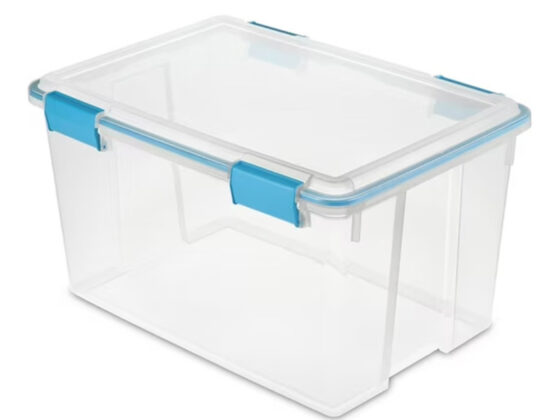Most Americans have had the experience of driving to their favorite store, or at least a store that serves a useful purpose in their lives, and finding that it has closed. That can be jarring and disappointing.
In some communities, it’s just inconvenient. You can drive to another store.
In other places that are less well served, the loss of certain stores is devastating.
Losing a CVS or a Walmart in certain communities can be distressing. Yet both of those chains, to very different extents, have been quietly closing stores.
Related: Beloved 159-year-old Home Depot rival shuts down, liquidates
If you lose a community grocery store or pharmacy and there isn’t another one nearby, it could have a crippling effect. Some people simply lose access to fresh produce and well priced food.
In the case of pharmacies, it could become difficult to fill prescriptions or meet other immediate medical needs. There’s a story behind every store that closes, and in many cases, those stories do not have happy endings.
Yes, it’s not all that crushing when your neighborhood loses its Panera, but if eating there regularly, or even as an occasional treat, was part of your routine, then the loss stings.
A number of popular retailers are in the middle of long-term plans to close hundreds of locations over a period of years.
Image source: Shutterstock
These retailers have quietly closed stores in 2025
While some closures get more attention than others, these have flown under the radar. In most cases that's by design, as companies don't want the negative local publicity that comes from closing until the shutdown process has already begun.
- Walmart
- Locations closed in July-August 2025 in Georgia, Ohio, Pennsylvania.
- Often cited for underperformance, crime, or changing local demand.
- CVS
- Still executing previously announced plan (900 stores over 3 years).
- Panera Bread
- Some franchisees are closing low-volume locations quietly.
- Rite Aid
- Bankruptcy-related closures, but many new rounds still being added.
- Entire company is being shut down.
- Family Dollar / Dollar Tree
- 1,000+ closures expected by the end of 2025.
- Walgreens
- Continued “store footprint optimization” through mid-2025.
- Macy’s
- Closing 66 stores, with 150 total closures expected by 2026.
More Retail:
- Supermarket inflation: Beef prices soar as egg prices fall
- Levi's shares plan to beat tariffs, keep holiday prices down
- Amazon’s quiet pricing twist on tariffs stuns shoppers
Why are retailers closing stores?
It's always easy to blame the internet, but that's only a small piece of the puzzle.
“The first quarter 2025 e-commerce estimate increased 5.6% (±0.9%) from the first quarter of 2024, while total retail sales increased 3.2% (±0.4%) in the same period. E-commerce sales in the first quarter of 2025 accounted for 15.9% of total sales,” according to Census.gov data.
That's 15.9% of all retail sales leaving physical stores for online. That alone is not causing mass store closures.
“One of the main reasons so many brick-and-mortar stores are shutting down in 2025 is a combination of economic pressure, rising interest rates, and ongoing inflation. More than half of Americans say they’re in ‘fair' or ‘poor' financial shape, and one in five are struggling to pay their rent or mortgage. That means less disposable income to spend in retail stores,” Bitly.com reported.
Retail expert and Retailwire Brain Trust member Neil Saunders does not see these closures as a bad thing.
“We obsess over store closings. However, stores closing down is not a new thing. Nor is it necessarily an unhealthy thing. While there is often a tragic human cost, it is right that the dead wood of retail is cleared away to make way for new concepts and better retail,” he wrote.
Saunders, who serves as managing director of GlobalData’s retail division, thinks this process actually helps the economy.
“This churn is natural and normal, and it is better than the alternative of stagnation. As for the future of stores, they are secure. For all the silly retail apocalypse headlines, sales through stores account for the vast majority of retail. And most shoppers, including younger shoppers, want and like to use stores,” he added.
Related: Furniture, mattress maker forced into Chapter 7 bankruptcy filing













